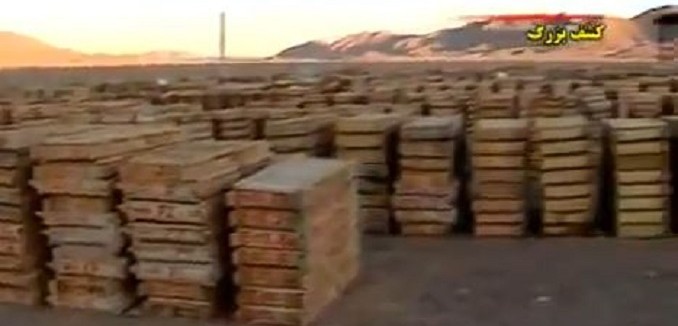The United Nations has been declining to publish a detailed report – one which has already been approved by the U.N. Security Council sanctions committee – detailing the degree to which Iran has been able to dodge existing sanctions. Somebody somewhere wanted the report to see the light of day, and showed it to Foreign Policy. Report published:
Iran continues to evade U.N. sanctions on its nuclear program by changing its supply routes, erecting new front companies, and shopping the world for lower grade parts not explicitly prohibited by the U.N. Security Council, but still capable of contributing to the assembly of a nuclear power reactor… The 45-page report – which summarizes the U.N. panel’s work over the past year – documents several cases in Europe and the Middle East where Iranian agents have sought to procure a host of industrial products — including valves, carbon fiber, and bellows — that can be used in a nuclear facility. The equipment, however, is not explicitly prohibited from being sold to Tehran, making it easier to get similar items through customs.
“The panel continues to be told by many states that Iran is seeking items that fall below established control thresholds but could be used for prohibited activities,” the report states. “All of the nuclear related cases investigated by the panel during its current mandate involve items that are not to be found among the [control] lists” that states are banned from supplying Tehran.
The report details 11 distinct cases in which Iran has violated sanctions, including an effort by an Iranian entity to 1,767 valves, which can be used in nuclear facilities, from Germany.
Also on Monday, the chief of the U.N.’s nuclear watchdog gave his evaluation of the “steady” degree to which Iran has made progress in expanding its nuclear program:
Iran is making “steady progress” in expanding its nuclear program and international sanctions do not seem to be slowing it down, the U.N. nuclear agency chief told Reuters on Monday… “There is a steady increase of capacity and production (in Iran’s nuclear program),” Amano said in an interview. Asked if international punitive steps aimed at making Iran curb its atomic activity were slowing it down, he said: “I don’t think so … I don’t see any impact.”
Iran is known to be building infrastructure potentially useful for building both uranium- and plutonium-based nuclear weapons. Tehran has recently installed next-generation centrifuges in its uranium enrichment facility in Natanz, deepening analyst concerns that Iran will be capable of sneaking across the nuclear finish line before the West is able to detect and intervene in the decision. Iranian scientists have also recently announced that they intend to bring online their heavy-water reactor at Arak, positioning Iran to pursue a plutonium-based bomb.
[Photo: arminkaza / Youtube]




